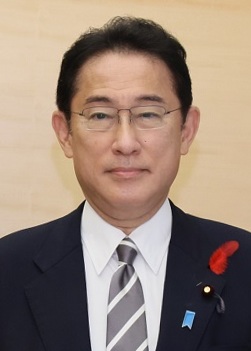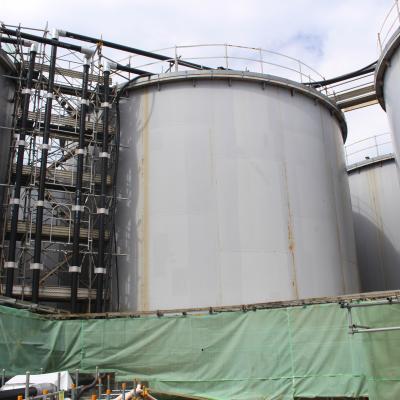Fukushima: Radioactive Water Release To Commence In Early 2023
Release Plan On Track
22 Oct 2021 by The Water Diplomat
TOKYO, Japan

Tokyo Electric Power Company (TEPCO), the operator of the problematic Fukushima Daiichi nuclear power plant, plans to begin a geological survey in early December to prepare for construction of a tunnel that will be used to drain diluted contaminated water from the stricken facility into the Pacific ocean, starting in the spring of 2023.
Ten years on from the nuclear disaster at Fukushima, Japan’s newly appointed Prime Minister, Fumio Kishida, has declared that wastewater from the Fukushima Daiichi nuclear power plant will be released into the ocean as planned.
The decision, which comes after years of deliberating on how to safely execute decommissioning efforts, has been met by a backlash of criticism from neighbouring countries and the local fishing industry.
Kishida, who assumed office on October 4, visited the nuclear plant last weekend to inspect relief efforts before laying flowers at a monument dedicated to the catastrophe.
Speaking to the media outside the plant, Japan’s 100th Prime Minister said: “ I felt strongly that the water issue is a crucial one that should not be pushed back.” Adding, “We will provide explanations about safety from a scientific viewpoint and transparency in order to address people’s concerns.”
Working with the International Atomic Energy Agency (IAEA), the Japanese government intends to release 1.37 millions tons of diluted radioactive water into the ocean over a 30 - 40 year period due to commence in 2023.
But fisherman local to Fukushima perceive the government’s decision as disastrous to the region and argue they will suffer greatly as a consequence of reputational damage.
Plans were initially proposed to discharge wastewater into the Pacific last October but were delayed by fierce opposition from the National Federation of Fisheries Co-operative Associations.
The federation submitted a statement to government ministers suggesting: “If the treated water were to be released, the reputational damage would be unavoidable, and we’re afraid that the impact would be so severe that the fishermen’s efforts would come to nothing, and could have a catastrophic impact on the future of the fishing industry in Japan.”
Director General of the IAEA, Rafael Grossi, previously addressed the international community in April this year, praising Japan’s proposed plans and offered reassurance to neighbouring countries including South Korea, China and Taiwan (who still impose import restrictions on food in the area) that all future operations will be safe, legal and transparent.
Earlier in the year Grossi described Japan’s proposed decommissioning solution as: “A milestone that will help pave the way for continued progress in the decommissioning of the Fukushima Daiichi nuclear power plant.
“Our cooperation and our presence will help build confidence – in Japan and beyond – that the water disposal is carried out without an adverse impact on human health and the environment.”
The contaminated water currently resides in over 1000 tanks situated at the destroyed plant where site operators TEPCO (Tokyo Electric Power Company) use ALPS (Advanced Liquid Processing System) to purify the water to legal and safe levels. TEPCO argue removal is necessary as their tanks will be at full capacity before the end of 2022.
The ALPS purification system removes 62 radioactive isotopes but the presence of tritium remains.
An advisory committee to the Japan’s government concluded in a report last year that the Japanese population are exposed to 2100 microsieverts of tritium each year owing to natural radiation. By diluting the wastewater and releasing into the ocean exposure would increase by 0.81 microsieverts over a year period.
The report stated that tritium is: “naturally produced in nature, and is also present in natural water… When tritium is discharged to the sea, rivers, lakes and the atmosphere in compliance with the respective country’s regulations, there have been no examples of a negative impact attributable to tritium at the areas located around the nuclear power facilities.”
Earlier in the month Kishida pledged to rebuild the north-eastern area of the country and said his recent decision is a necessary step to decommission the nuclear plant and protect the future of Japan.
“Without reconstruction from the Great East Japan Earthquake, there will be no revival of Japan.
“In keeping with my strong feelings on this, we will work exhaustively to realize assistance for victims of the disaster, the rebuilding of industries and livelihoods, and the reconstruction and revival of Fukushima.”
Related Topics

16 Apr 2021 TOKYO, Japan
The Fukushima nuclear plant is running out of space to store radioactive water following its destruction in the 2011 earthquake and tsunami. Plans by owners TEPCOto begin dischargi...
